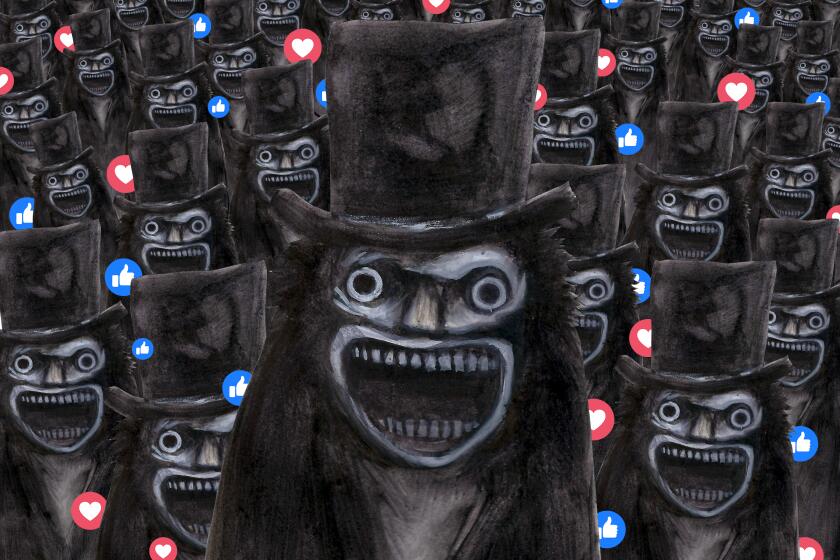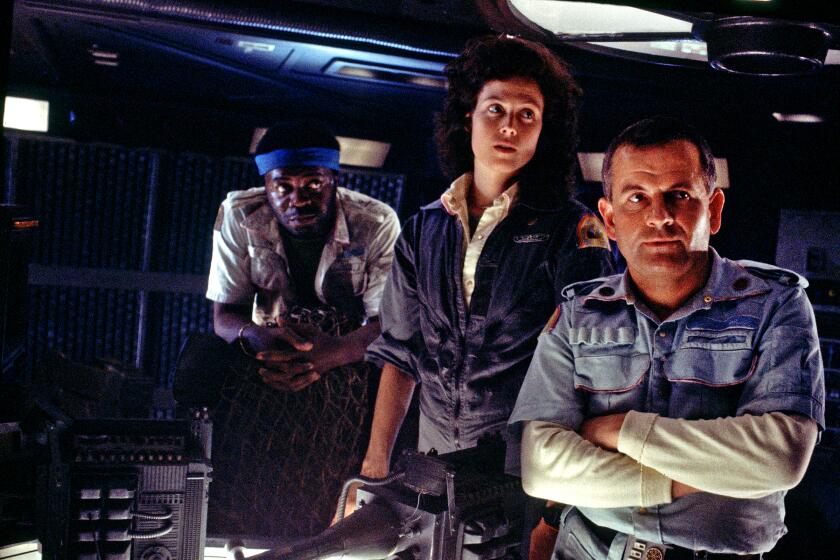Ad nauseam
IN THE MOVIE “Animal House,” there is a memorable scene in which John Belushi’s character, John “Bluto” Blutarsky, rises from a table in the Faber College cafeteria and exclaims: Food fight! A wild melee ensues.
At the conclusion of the film, we learn what happened to the wayward frat boys of Delta House. Blutarsky was elected to the U.S. Senate.
Judging from the antics of some 2006 senatorial campaigns, Blutarsky would fit right in.
Polls reveal that voters are dissatisfied with the direction of the country, and, unwittingly, Republicans may have nationalized the election, to their great detriment. Public unhappiness with the Bush administration’s execution of the war in Iraq -- coupled with congressional corruption, indiscretions and incompetence -- drives the public’s sour mood.
Considering all this, one would think that the candidates in the hotly contested Senate races in Missouri, Virginia and Tennessee, whose outcomes will likely determine whether Democrats or Republicans control the chamber after Tuesday’s midterm elections, would be spotlighting the big issues -- spiraling healthcare costs, loss of manufacturing jobs, ballooning federal debt, the very real possibility that today’s young Americans could be the first generation in U.S. history to have a lower standard of living than their parents -- in a serious and sober way. Wrong. It’s a food fight!
Having crafted messages and produced advertising for senators, governors and presidents over the last 20-plus years, I’ve been in my share of political food fights. But the messages and ads of many 2006 campaigns reveal something disturbing and unsettling about contemporary politics: an absolute trivialization and marginalization of the relevance of Washington in our lives.
Consider what the citizens of Missouri, Virginia and Tennessee have been treated to:
* In Tennessee, an incendiary ad, paid for by the Republican National Committee, implied that the Democratic senatorial candidate, Harold Ford Jr., an African American, is aligned with porn interests and is either vulnerable to being seduced by a white woman or eager to seduce one. This was the curtain-raiser for a new series of ads, running late last week, that sought to unmask “the real Harold Ford,” as if he has been a mannequin to date. Ads from the Republican candidate, Bob Corker, feature his two teenage daughters extolling his virtues, and another stars his wife. Apparently, the cumulative effect of the attack ads from the Ford camp, which have spotlighted charges of financial mismanagement during Corker’s tenure as mayor of Chattanooga, has forced the Republican to turn to his family to restore his character’s luster.
* In Virginia last week, it was Warner versus Warner instead of Allen versus Webb. While an ad from GOP Sen. George Allen’s campaign featured the state’s popular senior senator, John Warner, praising the incumbent, challenger Jim Webb’s team was airing an competing commercial starring the state’s popular former governor, Mark Warner.
For Virginians, this probably was a welcome respite because the commercials got the highly negative main combatants off the stage temporarily.
Most of Allen’s troubles have been self-inflicted. He was captured on videotape calling an Indian American a “macaca,” a racial slur. He was slow to apologize, which prompted the media to delve into his past in search of other name-calling incidents with racial overtones, which led to stories about Allen’s reputed fondness for the “N-word” while in college. This was followed by the disclosure of his Jewish heritage, previously unknown, which quickly raised questions about Allen’s truthfulness about his background. Then some of his campaign workers were taped roughing up a protester who had a question for the senator. Seeking to wipe the slate clean, Allen took the unprecedented step of running a two-minute ad in which he addressed the past controversies and sought to refocus voters on his tenure as governor and senator. It was a great concept -- but bad execution. In the ad, Allen appears nervous and is stilted in his defense.
As for Webb, he’s closing his campaign with a television ad that speaks to the failures of those in power and ends with a time-tested refrain: If voters want a new direction and change, he would be honored to have their vote.
* Missourians witnessed the unveiling of a powerful ad starring Michael J. Fox, who has Parkinson’s disease. In the TV spot, he calls for the election of Claire McCaskill, the Democratic candidate for the Senate who supports a measure on the state ballot that would greatly expand stem cell research. Her opponent, Sen. Jim Talent, opposes it. (Radio talk show host Rush Limbaugh butted into the race when he accused Fox of exaggerating his symptoms to attract sympathy.)
The Fox ad was a change of pace in an otherwise relentlessly negative campaign. Talent’s spots have attacked McCaskill’s personal finances and her husband’s business affairs, while McCaskill’s spots have criticized the incumbent as being a do-nothing senator and “voting to ship jobs overseas while voting to increase his own pay.” Voters in the Show-Me State have been shown little of what either candidate would do for them in the next six years.
Interestingly, the boilerplate messages of all the candidates in the three states adhere to themes favored by their respective party hierarchies in Washington. Republicans have routinely deployed President’s Bush’s “stay the course” argument when Iraq comes up, which has been more of a curse, while the Democrats, still reeling from the Swift Boat ads that helped sink Sen. John Kerry’s presidential campaign (the outcry over the senator’s reputed “botched joke” has reawakened the Swift Boat nightmare) mouth words that make them sound patriotic and tough but not an echo of the Republican status quo.
Because Missouri, Virginia and Tennessee have large rural populations, which have proved to be Republican bastions on cultural issues, the Democratic candidates are attempting to connect with them culturally as well.
In one of his first TV ads, Ford shows up in a church talking about the values he learned from attending worship services. In addition, he has run ads on Christian radio stations throughout the state. Webb has used his career as a decorated Marine and service as President Reagan’s secretary of the Navy as a symbol of strength -- an olive branch, if you will -- to voters in the Hampton Roads area, which houses naval yards and is a pivotal swing area of the state. And in “outstate” Missouri -- everywhere except the cities and suburbs of Kansas City and St. Louis -- McCaskill has increased her media spending, lest she repeat her close loss in a race for governor two years ago.
It may be unfair to single out the senatorial races in Tennessee, Virginia and Missouri as especially disrespectful of those states’ residents in a year when most campaigns across the country have been callous and caustic while ignoring the issues that affect voters. The irony is that such campaigning will continue to marginalize Washington, undercutting the power of those elected to serve in the nation’s capital.
More to Read
Only good movies
Get the Indie Focus newsletter, Mark Olsen's weekly guide to the world of cinema.
You may occasionally receive promotional content from the Los Angeles Times.








